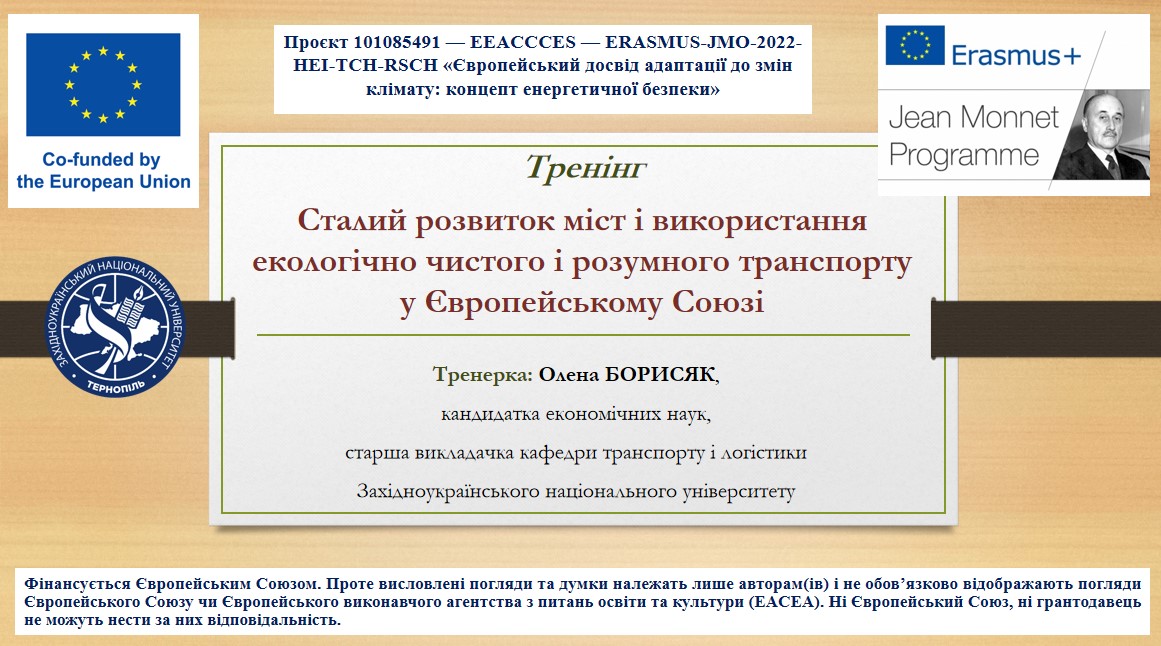Trainings are being held at the Educational and Research Institute of Innovation, Environmental Management and Infrastructure of the Western Ukrainian National University as part of the project 101085491 – EEACCCES – ERASMUS-JMO-2022-HEI-TCH-RSCH “European Experience in Adapting to Climate Change: The Concept of Energy Security” under the Erasmus + program (Jean Monnet).
Olena Borysiak, Director of the Educational and Research Center for Innovative Development and Training, Senior Lecturer at the Department of Transport and Logistics of ZUNU, conducted trainings on “Environmental Marketing” and “Sustainable Urban Development and the Use of Environmentally Friendly and Smart Transport in the European Union” for students of the TT-31 group majoring in Transport Technologies (Motor Vehicles). The training participants learned about the challenges of environmental logistics, environmental leasing, environmental marketing, the peculiarities of the transition to a low-carbon economy in the European Union and the introduction of a carbon tax, the development of climate leadership, the value of conscious consumption in the European Union, the development of smart cities and sustainable urban mobility in the European Union.
The organization of trainings as part of the project is aimed at raising students’ awareness of the impact of climate change on the development of the energy sector, the tools and benefits of energy management, engaging women and youth in business activities in the field of renewable energy and energy services, developing skills in energy management, energy audit, and environmental and energy literacy.
Funded by the European Union. However, the expressed views and opinions belong solely to the authors and do not necessarily reflect the views of the European Union or the European Education and Culture Executive Agency (EACEA). Neither the European Union nor the grantor can be held responsible for them.






